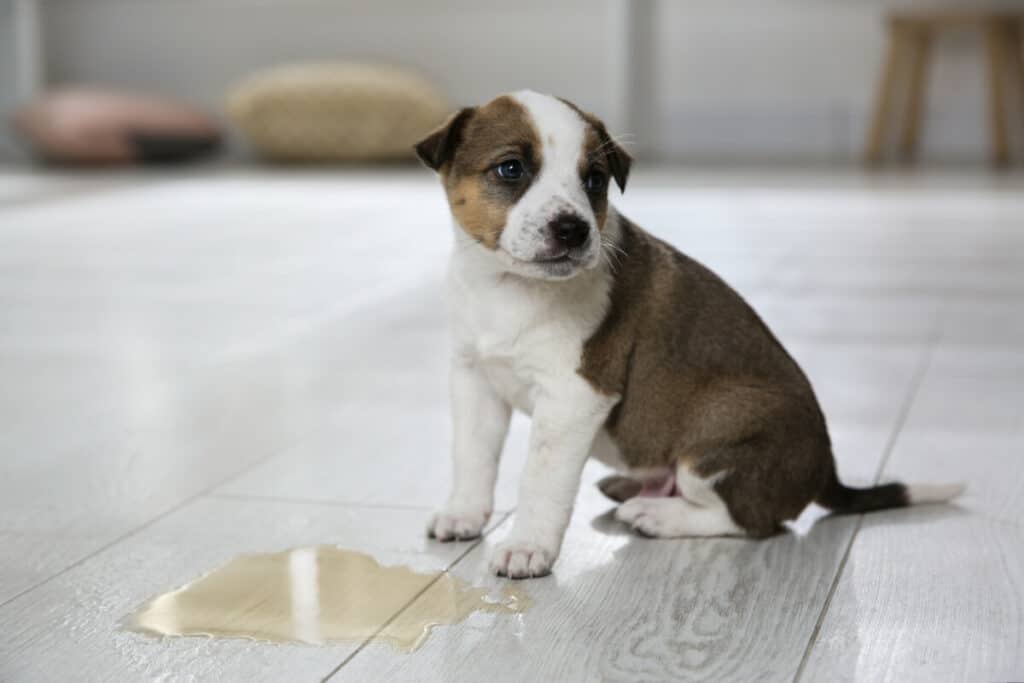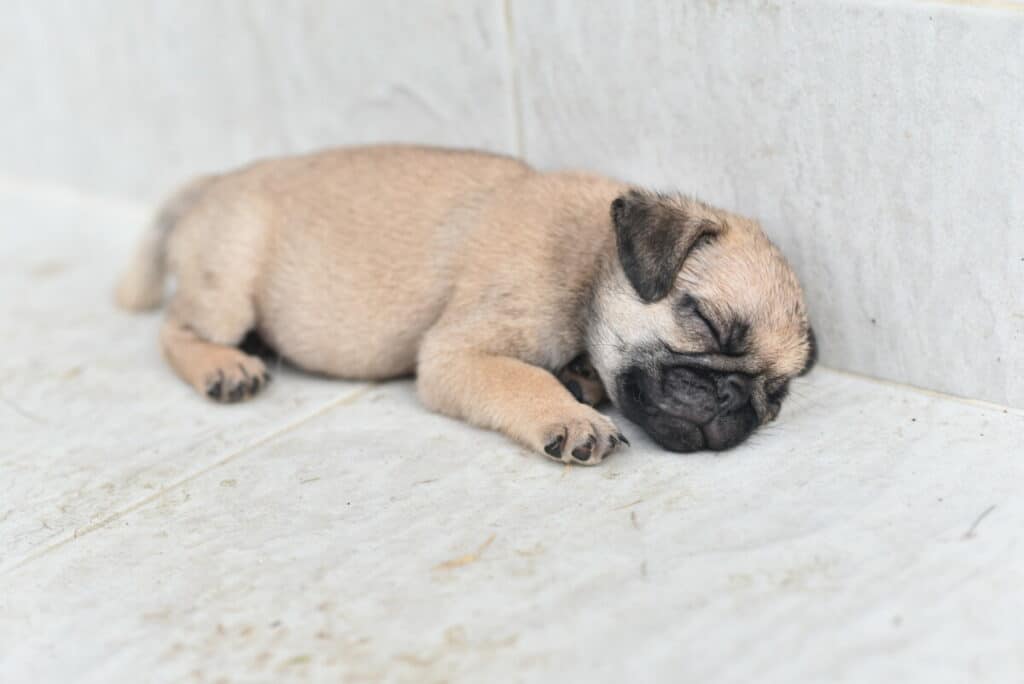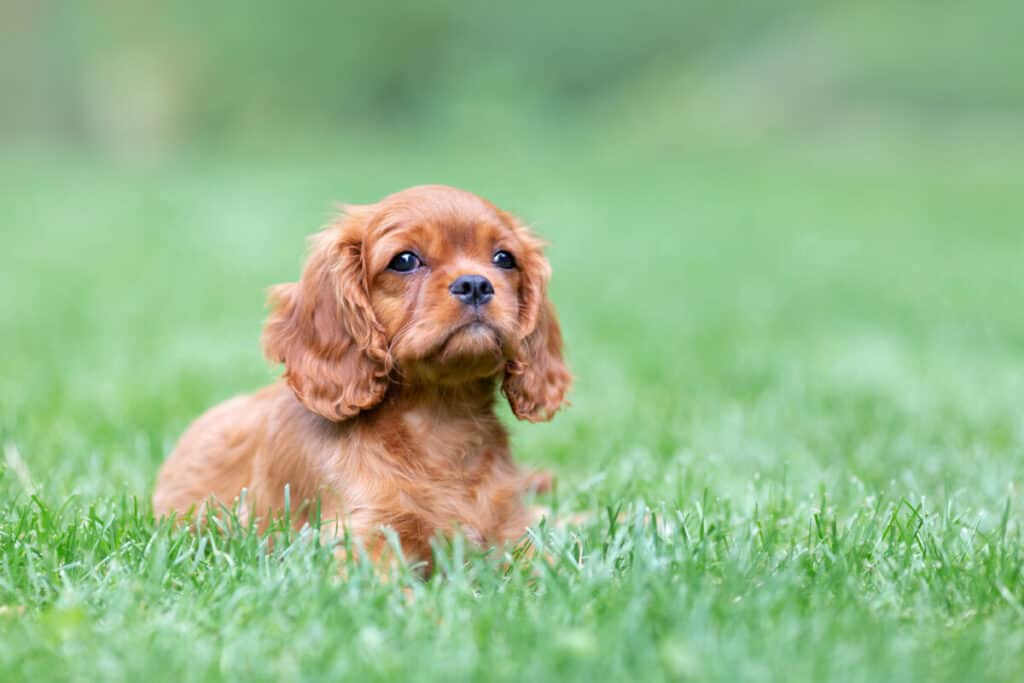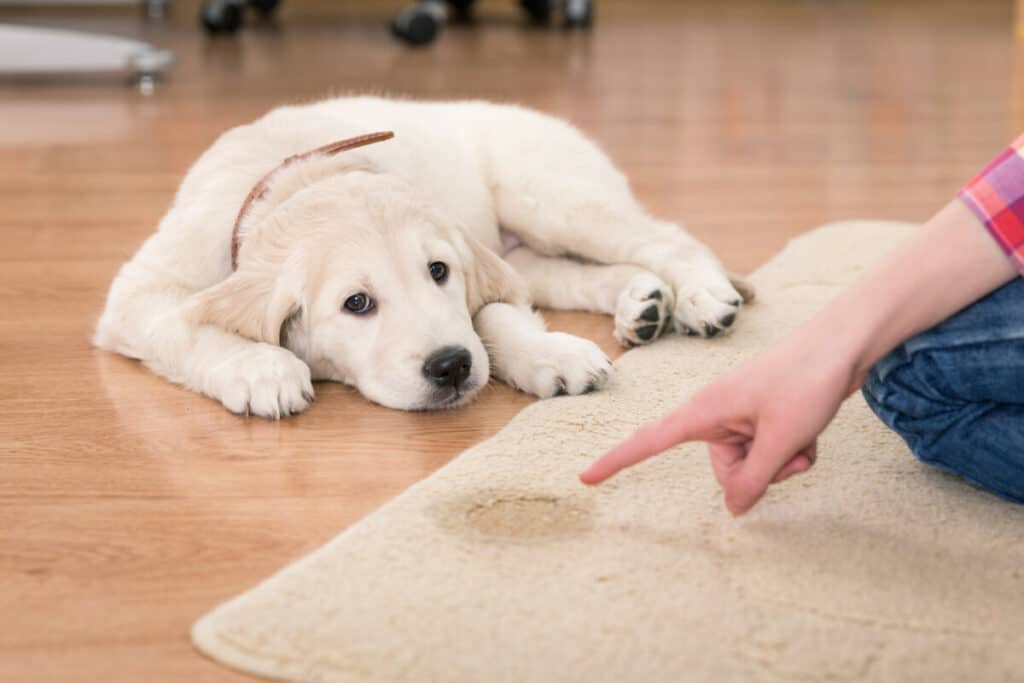
If you are a new puppy owner or don't have much experience with puppies in general, you may have some questions. Urinating habits that may be normal for a puppy might not be normal for a full-grown dog. So, can puppies pee in their sleep?
Puppies can pee in their sleep from birth to six months old. It is most common for puppies to pee in their sleep while their bladder is still developing and they are still trying to learn how to control it. Once a puppy has been potty trained, it should no longer pee in its sleep.
The following includes more information that you should know about why your puppy pees in its sleep.
Understanding Why a Puppies Pee in Their Sleep
Puppies are very similar to an infant where they do not have full control over their bladders. That lack of bladder control causes them to pee, even when they are sleeping.
When puppies are first born, you'll notice that their mother licks them quite often. This is the technique the mother uses to clean the puppies, including any urine they may excrete during this time.
Puppies will not have full bladder control until around four months old. If your puppy is peeing in their sleep past the age of six months old, it's best to talk to a veterinarian.
What Causes a Puppy to Pee in their Sleep?
If your puppy has already gained some bladder control but is peeing in their sleep, there can be some factors that cause that to happen. These are factors that you'll want to watch for if the peeing in the sleep continues for a long period of time.
- Recently spayed/neutered
- Change in environment
- Anxiety (including separation anxiety)
These are all things that can be fixed within a couple of days to help prevent your puppy from peeing in their sleep. If you notice any behavioral changes after a couple of days and the peeing continues, contact your veterinarian.
How to Help Your Puppy Build Healthy Bladder Control

Potty train your puppy early. You can begin potty training a puppy as early as two weeks old. This will begin to build bladder control and help your puppy understand how you want them to do things.
Potty training is actually quite a simple task if you take the time and effort to work with your puppy. Your puppy will catch on pretty quickly as long as you are consistent with potty training.
A puppy needs to be taken out to go potty every couple of hours. This is because of their lack of bladder control and how often they are intaking liquids.
Take your puppy onto a puppy pad, or better yet, outside to a grassy area every couple of hours (even in the middle of the night). Start doing this as soon as two weeks old so they can begin to get used to the environment they are supposed to go potty in.
Every time you put the puppy on a puppy pad or on the grass, begin using commands. These commands can include, “Go potty!” or “Go bathroom!” or “Do business!” or whatever other command you would prefer to use. Make sure you are consistent with this command do not change the command.
Once your puppy has completed going to the bathroom, praise them so they know they did something they were supposed to do. As soon as they are able to eat solid foods, you can also reward the puppy with a treat.
Why Potty Train Early On?
This all goes back to that bladder control. Training a puppy early on and creating an understanding of where they are supposed to go potty allows them to learn bladder control and associate it with an environment.
By helping train a puppy to gain more bladder control, you are helping prevent accidents from happening while it is sleeping and awake.
Signs Your Puppy May be Unwell if they Pee in their Sleep

If your puppy has been potty trained and is past that six-month-old mark and is still peeing in their sleep, you should be concerned.
There are multiple things that could cause your puppy to pee in its sleep. You'll want to understand what signs to look for to be able to tell what may be wrong with your puppy.
First and foremost, with every single one of these, always look for behavioral changes within your puppy. Behavior changes are almost always the first sign that something is wrong.
Urinary Tract Infection
Urinary Tract Infections (UTIs) are most common in female dogs but can be found in male dogs as well. This can cause issues when urinating and sometimes even cause a lack of control when urinating.
These are the major signs you want to look for when trying to assess if your puppy has a UTI:
- Struggling to urinate
- Lack of control when urinating
- Looks in pain while urinating
- Blood in the urine
- Smelly urine
- Lack of appetite
- Very thirsty
- Vomiting
There will not always be signs of a UTI, but if there is any concern, contact your veterinarian. If your puppy does show any of these signs, call your veterinarian immediately.

Kidney Disease
There are multiple reasons a puppy may have failing kidneys. Sometimes a puppy can be born with conditions that cause kidney failure. If your puppy eats something that it wasn't supposed to eat, it can develop kidney failure or kidney disease.
These are the major signs you want to look for when trying to assess if your puppy has kidney disease:
- Looks in pain
- Lack of control when urinating
- Very thirsty
- Lack of appetite
- Lethargy
- Vomiting
If your puppy shows any of these symptoms, call your veterinarian immediately or bring them to an emergency veterinarian.
Spinal Cord Disease
This is commonly known as a “slipped disc” and is when the disc ruptures in your puppy's spine. This is not very common in puppies, but it can happen if your puppy injures its back.
These are the major signs you want to look for when trying to assess if your puppy has spinal cord disease:
- Looks in pain
- Lack of control when urinating
- Paralysis
- Incontinence
If your puppy shows any of these symptoms, call your veterinarian immediately or get them to an emergency veterinarian.

Cindy is a prolific writer and online researcher who can't imagine life without dogs. There is scarcely a dog topic she has not researched or written about. Her love for dogs and helping dog parents is evident by the thousands of dogtemperament.com visitors who read her articles monthly. Most of all, each topic Cindy writes on helps forge a stronger bond and understanding between her and her happy Catahoula Leopard Dog Jossie.